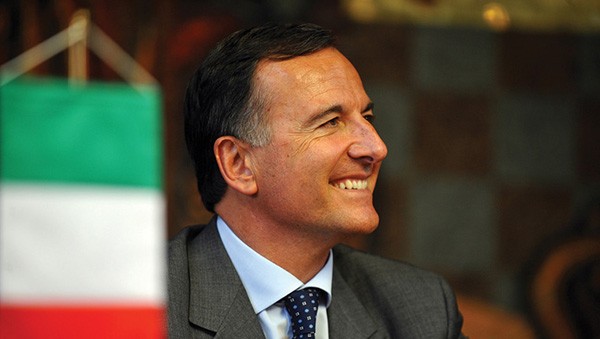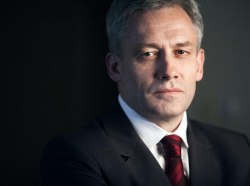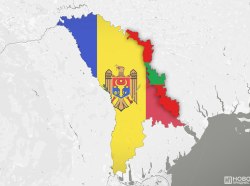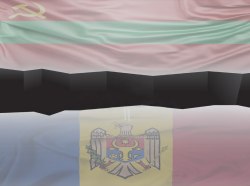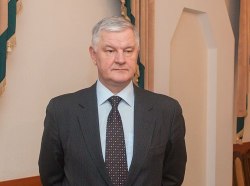On 1 January 2018, Italy succeeded its neighbour Austria as OSCE chairman. Rome nearly immediately appointed the famous Italian politician Franco Frattini special representative on the Moldovan-Pridnestrovian settlement. An experienced diplomat, the ex-foreign minister, as expected, will bring dynamics to the negotiation process between Moldova and Pridnestrovie, which the Austrian predecessors lacked so much.
It is noteworthy that during the Austrian chairmanship only one round of negotiations in the "5 + 2" format took place, while the parties - Pridnestrovie and Moldova - had been ready to sit down at the negotiating table in the presence of mediators and observers long before Vienna's decision to convene a "Permanent Conference... " meeting. However, Austrian diplomats demanded the achievement of specific agreements that could be documented following a "5 +2" meeting - in fact, just to benefit from the achievements.
This approach was not shared by the Pridnestrovian side. Most likely, the meeting in Vienna, which took place on from 27 to 28 November, would not have happened had our leadership not given impetus to the negotiation process. It was Pridnestrovie's initiative to open a bridge across the Dniester near the villages of Bychok and Gura Bicului that became an important step towards the resumption of the negotiating process in 2017. The agreement to open the bridge for road traffic was followed by four more agreements, which were subsequently recorded in the final "Vienna Protocol" as an important achievement in the negotiation process.
This approach by Austrian diplomats to perform their duties as an intermediary in the negotiation process did not appeal to anyone; therefore, great hopes were pinned to Italy's upcoming chairmanship back at the end of 2017. And Franco Frattini made it clear in aninterview with Russian journalists in January that Rome would take the most active position as an international partner.
Having studied the state of affairs in the Kishinev-Tiraspol talks, Frattini noted that there were chances to move forward in at least two areas: motor transport and freedom of movement in general.
He also noted back then Russia's positive contribution to the negotiation process, expressing readiness for cooperation.
Meanwhile, Russian diplomats assess Italian activities as OSCE chairman with cautious optimism. Thus, during a February meeting with Pridnestrovian foreign minister Vitaly Ignatiev, Russian ambassador at large Sergey Gubarev expressed his fear that the Italians could follow the negative example of their neighbor.
"I have had the impression so far that Mr Frattini wants to follow the wrong path of his Austrian predecessor. So far, neither our Moldovan colleagues nor I have any idea about when he will visit the region," said Sergey Gubarev. According to him, now it is only possible to note with satisfaction the high appreciation [by Frattini] of Russia's role in the settlement of the Moldovan-Pridnestrovian conflict, but "so far it has remained words only."
"We have agreed that both Kishinev and Moscow and Tiraspol will take the necessary steps to stir up our Italian colleagues," Gubarev said after his visit to Tiraspol.
Soon it became known that Franco Frattini was going to visit Pridnestrovie and Moldova in March, and before that the Italian diplomat, whi is known for his friendly relations with Russian foreign minister Sergey Lavrov, decided to visit Moscow. In the Russian capital, he delivered a public lecture at the Diplomatic Academy.
In his speech, the politician paid more attention to international events and spoke little about Pridnestrovye, chiefly answering the questions posed by Russian political scientists and experts. His answers made it clear that not in vain had Gubarev expressed his fears.
As Andrey Devyatkov, a Russian political scientist, who was present at the meeting wrote in his article, Frattini said that he would like the two parties to the conflict to reach 2-4 agreements on specific practical issues in order to have preconditions for organizing a "5 + 2" meeting in April, although it was Austria's submission of preconditions that had blocked the work of the "Permanent Conference..." in 2017.
Andrei Devyatkov explained that the concrete steps included the resolution of such issues as the participation of cars with Pridnestrovian licence numbers in international motor traffic, cooperation in the field of communications and telecommunications.
"Despite the fact that Frattini adheres to the upbeat position for negotiations between the parties, he noted that he was concerned about the possible politicization of the conflict settlement by Kishinev due to the coming parliamentary elections, adding that during his visit to the capital of Moldova in March he would try to convey to the authorities the idea that it's 'the wrong way'," stressed Nikolay Devyatkov.
According to the expert, "Frattini said that if Kishinev and Tiraspol fulfilled the current agenda for resolving specific issues in the interests of citizens, the next step could be a banking agreement since Pridnestrovian companies need more freedom in dealing with bank transactions."

